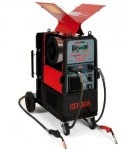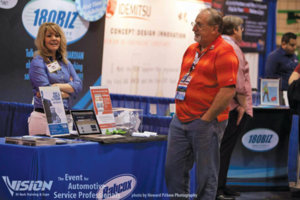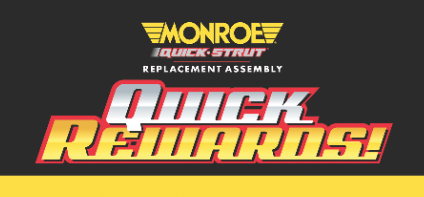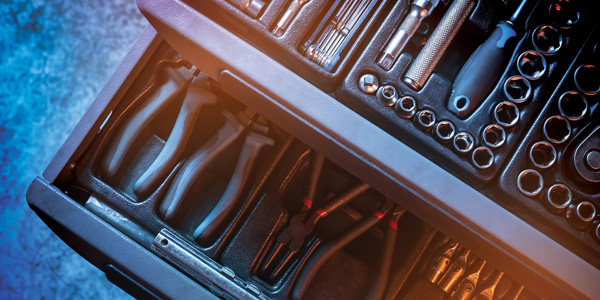by Mark Battersby
 The so-called “Fiscal Cliff” tax package, recently passed by Congress and signed into law, renewed more than 50 temporary tax breaks through 2013, saving individuals and businesses about $76 billion.
The so-called “Fiscal Cliff” tax package, recently passed by Congress and signed into law, renewed more than 50 temporary tax breaks through 2013, saving individuals and businesses about $76 billion.
Admittedly, single individuals with incomes above the $400,000 level and married couples with income higher than $450,000 will pay more in taxes in 2013 because of a higher 39.6% income tax rate and a 20% maximum capital gains tax.
In fact, employees will find less in their paychecks in 2013 because the American Taxpayer Relief Act did not extend the payroll tax holiday that had reduced Social Security payroll deductions from 6.2% to 4.2% on earned income up to the Social Security wage base ($113,700 for 2013). It is a similar story for the self-employed.
There is good news and bad news contained in the fiscal cliff tax laws for the owners and operators of small- and medium-sized automotive repair shops and businesses. First, the good news: Greater certainty in taxes.
The owners and operators of many businesses have grown used to a number of longstanding tax breaks, but they also have had to get used to the uncertainty of whether they will be renewed each year. While many tax breaks were allowed to expire at the end of 2011, the new tax law renews them retroactively, allowing shop owners to claim them on both their 2012 and 2013 tax returns.
One Man’s Loophole
A unique provision in the new law involves — and is limited to — so-called “Motorsports Entertainment Complexes.” Nicknamed the “NASCAR Loophole,” the seven-year recovery period for motorsports entertainment complexes has been extended for capital expenditures made before Dec. 31, 2013. The amendment applies to property placed in service after Dec. 31, 2011.
Among the less-targeted business provisions in the new law are:
• THE WORK OPPORTUNITY TAX CREDIT (WOTC) — a tax credit that rewards employers that hire individuals from targeted groups. It has been extended to Dec. 31, 2013, and applies to individuals who begin work for the employer after Dec. 31, 2011. Under the revised WOTC, auto repair businesses hiring an individual from within a targeted group are eligible for a credit generally equal to 40% of first-year wages up to $6,000.
• WAGE CREDIT FOR ACTIVE DUTY SERVICE MEMBERS: The employer wage credit for employees who are active-duty members of the uniformed services now applies to payments made after Dec. 31, 2011, and before Dec. 31, 2013.
• EMPLOYER-PROVIDED EDUCATIONAL ASSISTANCE: The new tax law extends permanently the exclusion from income and employment taxes of employer-provided education assistance up to $5,250. The shop or business may also deduct up to $5,250 annually for qualified education assistance paid on behalf of an employee.
• QUALIFIED IMPROVEMENTS: This allows shop owners who had given up on the prospect of recovering the cost of improvements made to leased property (as well as restaurant or retail improvements) payback over a shorter 15-year period. The new law extends the 15-year straight-line recovery for qualified improvements made to leased property, qualified restaurant buildings and qualified retail improvements for expenditures made before Jan. 1, 2014. Best of all, the write-off applies to all property placed in service after Dec. 31, 2011.
 Tool & Equipment Upgrades
Tool & Equipment Upgrades
THE SECTION 179 EXPENSING WRITE-OFF: The American Taxpayer Relief Act extended through 2013 the Tax Code’s Section 179, first-year expensing write-off. Now, the higher expensing limits in effect in 2011 have been reinstated for 2012 and extended for expenditures made before Dec. 31, 2013.
Thus, an auto repair shop can expense or immediately deduct up to $500,000 of expenditures in 2012 and 2013, subject to a phase-out if total capital expenditures exceed $2,000,000. The maximum amount that can be expensed in years beginning after 2013 will, without amendment, drop to $25,000.
• COMPUTER SOFTWARE: The election to expense and immediately deduct rather than depreciate the off-the-shelf computer software used by so many shops under the tax law’s Section 179 has also been extended and applies to expenditures made before Dec. 31, 2013.
• QUALIFIED UNDER SECTION 179: Those shops and businesses with expenditures in 2012 and 2013 for qualified real property such as land and whatever is erected on it — including the already-mentioned leasehold improvements, restaurant property,and retail improvements — can elect to claim Section 179 expensing treatment for such expenditures.
• BONUS DEPRECIATION: The tax break that allows profitable auto service and repair businesses to write-off large capital expenditures immediately — rather than over time — has long been used as an economic stimulus. One-hundred-percent “bonus” depreciation expired at the end of 2011. Today, the new law allows 50% bonus depreciation for property placed in service through 2013. Some transportation and longer-lived properties are even eligible for bonus depreciation through 2014.
To be eligible for bonus depreciation, property must be depreciable under the standard MACRS system, and have a recovery period of less than 20 years. Code Section 179 first-year expensing remains a viable alternative especially for small businesses, since under the Section 179 write-off, property may be either used or new, in contrast to the bonus depreciation requirement that the taxpayer be the “first to use.”
The portion of the tax laws that imposes dollar limits on the annual depreciation deductions for cars and light trucks used in the auto repair business is also impacted by the new bonus depreciation rules. If bonus depreciation had not been extended, the 2012 tax year would have been the final year in which substantial first-year write-offs for buyers of business automobiles would be available.
 Financing, Money and Taxes
Financing, Money and Taxes
GAIN FROM SMALL BUSINESS STOCK: The new law extends the rule allowing 100% of the gain realized on the so-called “small business stock” used by so many businesses to attract investors to be ignored. In general, an investor can exclude from his or her income 100% of any gain realized on the sale or exchange of “small business stock” acquired prior to Jan. 1, 2014, and held for more than five years.
The amount of gain that can be ignored is limited to the lower of $10 million or 10 times the basis or book value of the small business stock disposed of during the tax year.
To be eligible, small business stock must have been issued after Aug. 10, 1993, and acquired by the investor at its original issue. The small business stock must also have been issued by a regular domestic, incorporated shop or business, with gross assets of less than $50 million.
AN ‘S’ CORPORATION’S BUILT-IN GAINS have new rules. Although an S corporation is a pass-through entity and not usually subject to income taxes, it is liable for the tax imposed on built-in gains or capital gains. The tax on built-in gains is a corporate level tax on S corporations that dispose of assets that appreciated in value during the years when the operation was a regular “C” corporation.
The new law provides for a five-year holding period for the sale of property with built-in gain for taxable years beginning in 2012 or 2013.
Living with Estate Taxes
Always of significant interest to family-owned businesses, the estate tax has long been a bit of a mixed bag. The $5 million dollar per person exemption was kept in place (and indexed for inflation continued). However, the top rate is increased to 40% and effective Jan. 1, 2013.
This change to 40% increased revenues from 2012 policy by $19 billion dollars. Other good news for estate planning — portability is kept in place and estate and gift remains unified, i.e., the $5 million stays in place for gift tax purposes as well. And, it is all permanent.
Planning Opportunities Abound
The majority of auto repair shops and businesses operate as pass-through entities, such as partnerships and S corporations. Profits are passed through to the individual owners and, therefore, are taxed at the individual’s income tax rates. A regular “C” corporation, with its current tax rate of 35%, may become more attractive with rates rising to 39.6% for some individuals.
Many popular but temporary tax extenders relating to businesses are included in the American Taxpayer Relief Act, although it is not the grand bargain as envisioned by lawmakers. Despite the Code Section 179 small business expensing, bonus depreciation and the Work Opportunity Tax Credit, the new law is effectively only a stop-gap measure designed to prevent the onus of the expiration of the Bush-era tax cuts from falling on middle-income taxpayers. Congress must still address spending cuts and may even tackle tax “reform.”
The time is now — hopefully before filing your auto repair operation’s 2012 tax returns — for every shop owner, operator and manager to consult with their accountants and/or tax professionals to focus on the potential savings offered by these newly revised, extended and expanded business credits, deductions and tax write-offs. 
Mark Battersby, a freelance writer based in Ardmore, PA, has been authoring tax and financial features in trade publications for more than 25 years.








